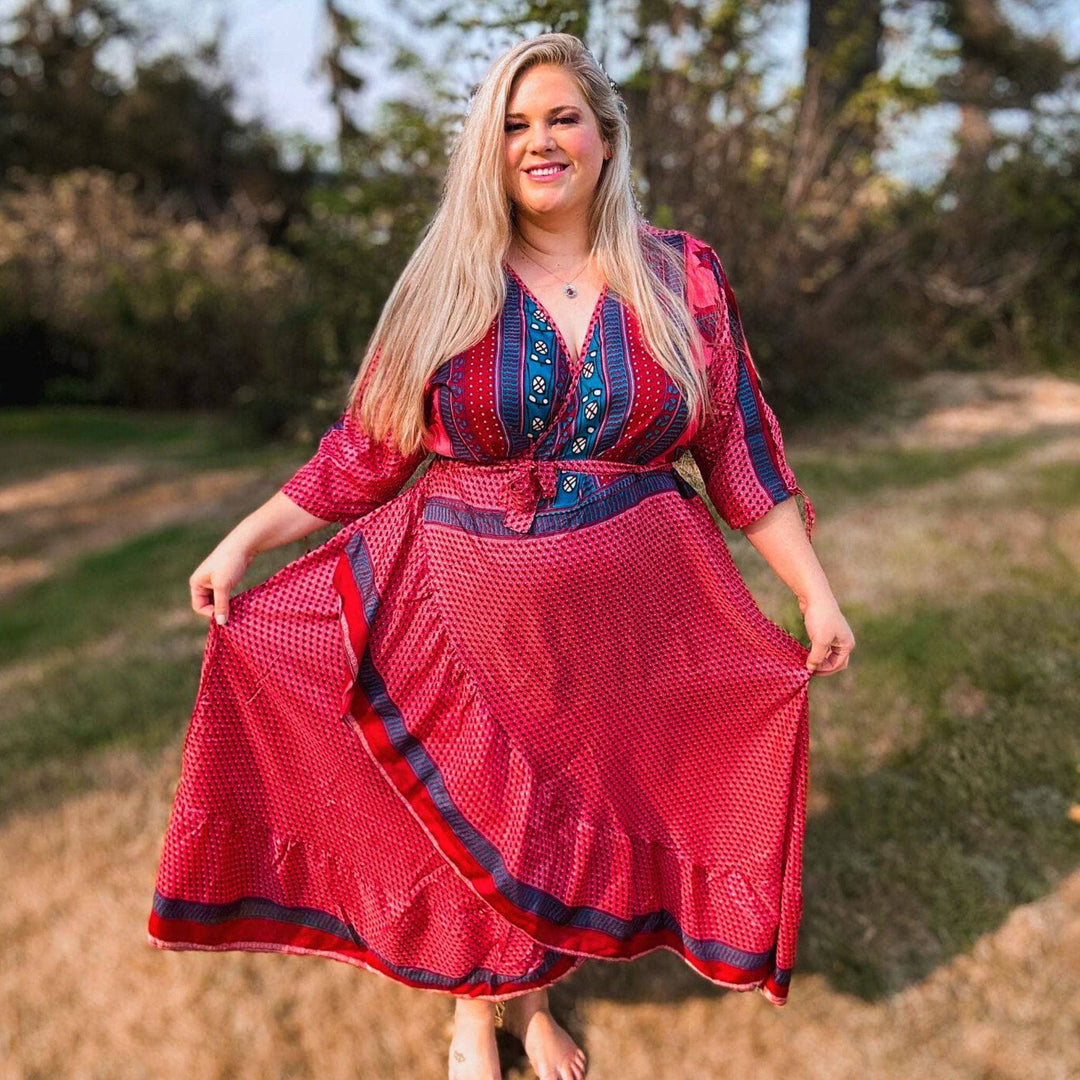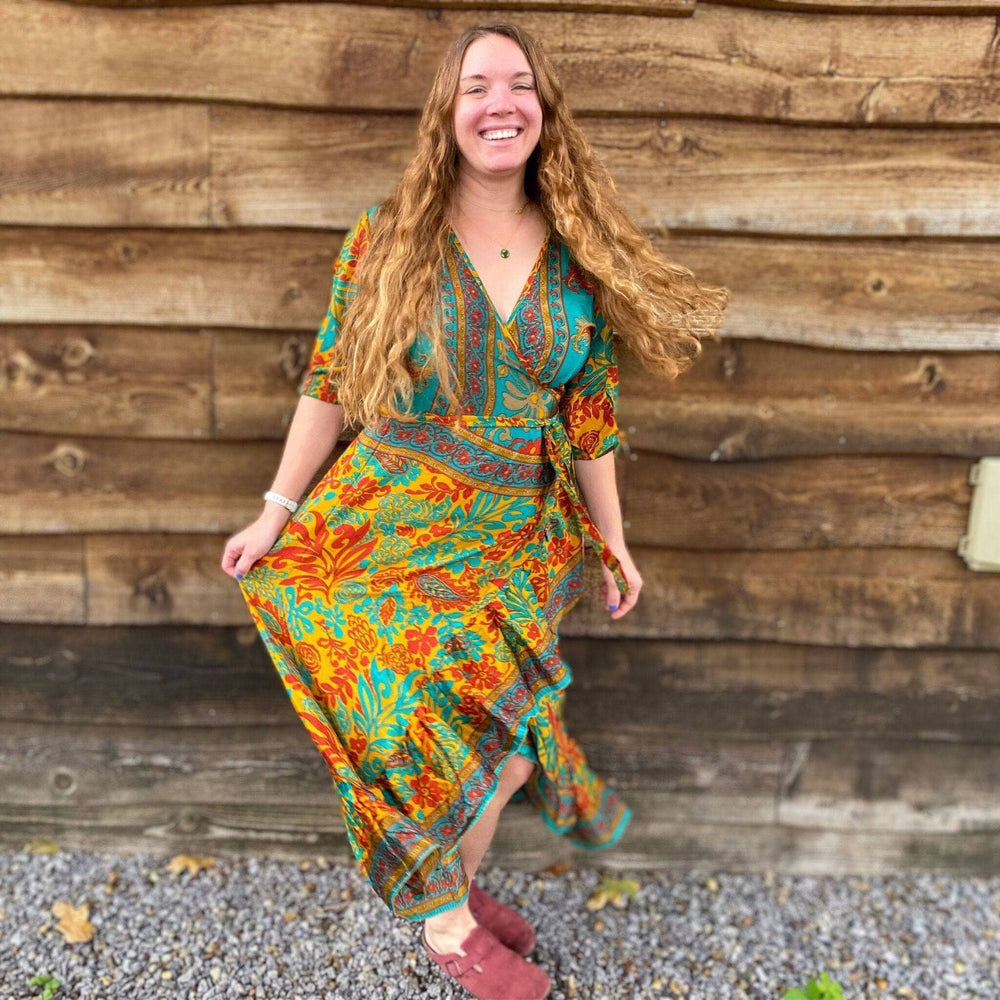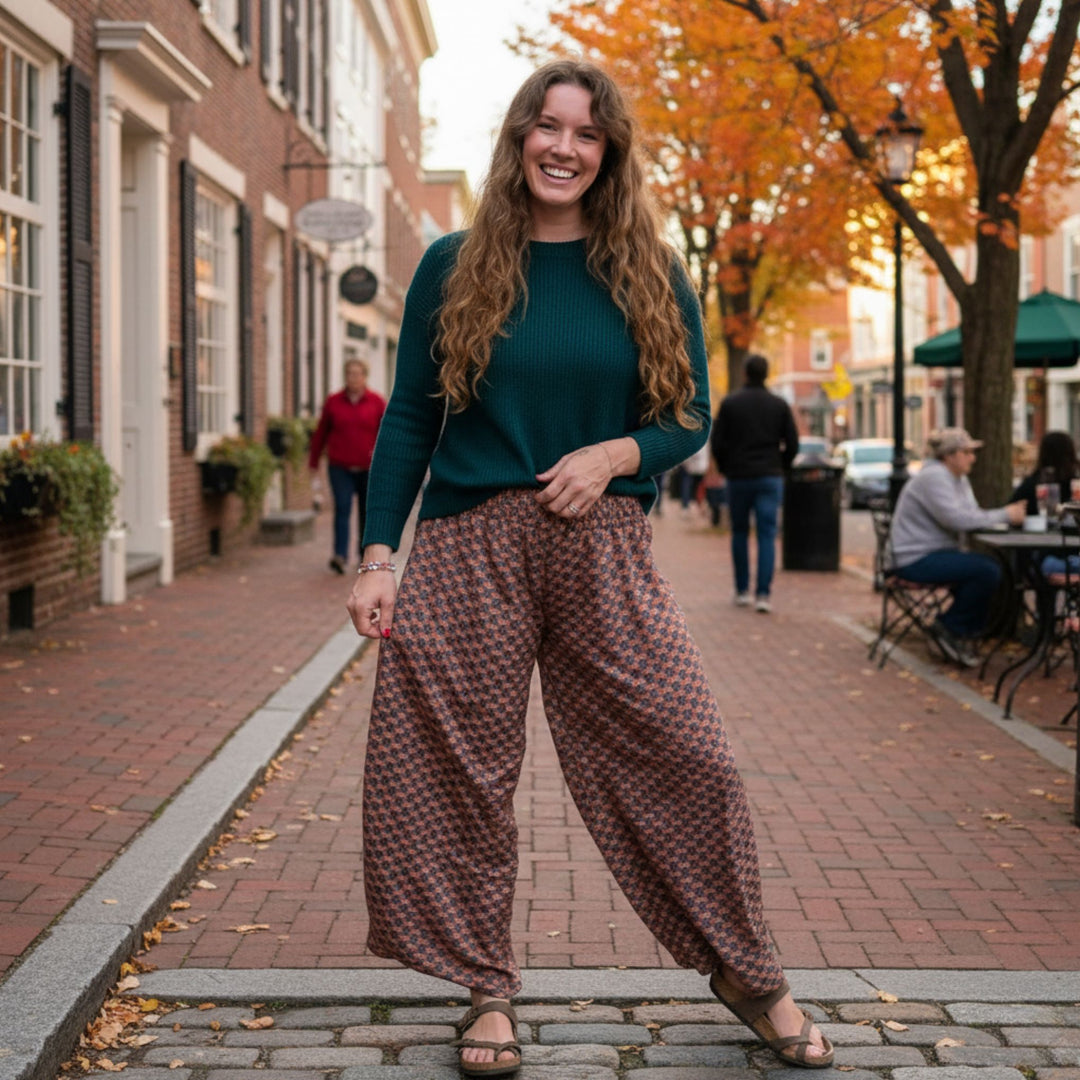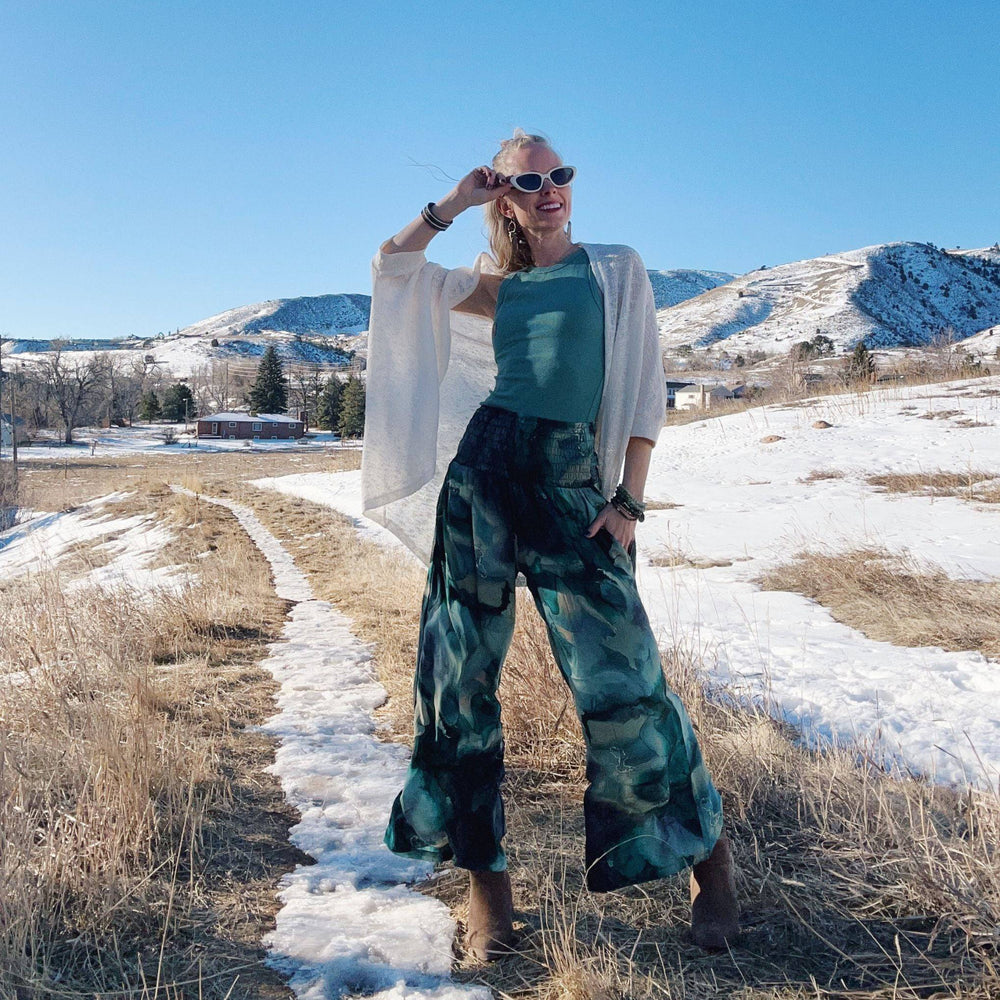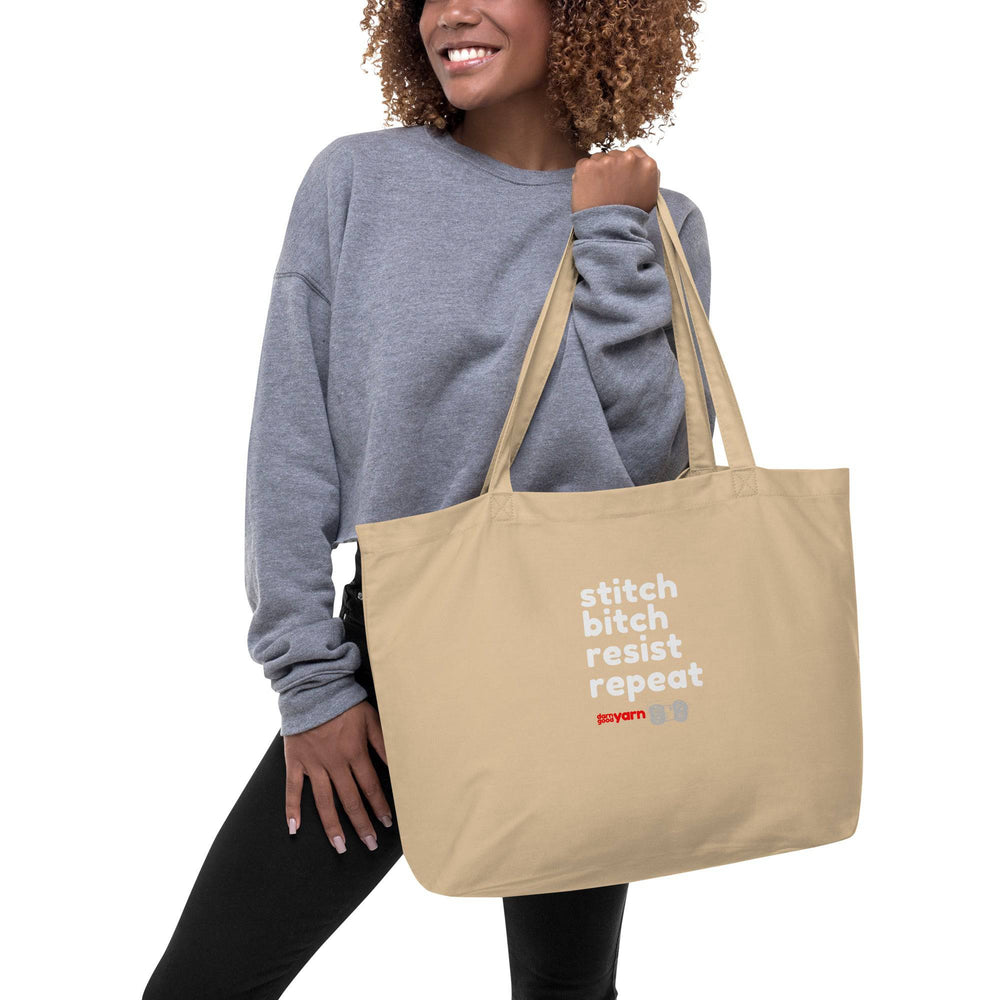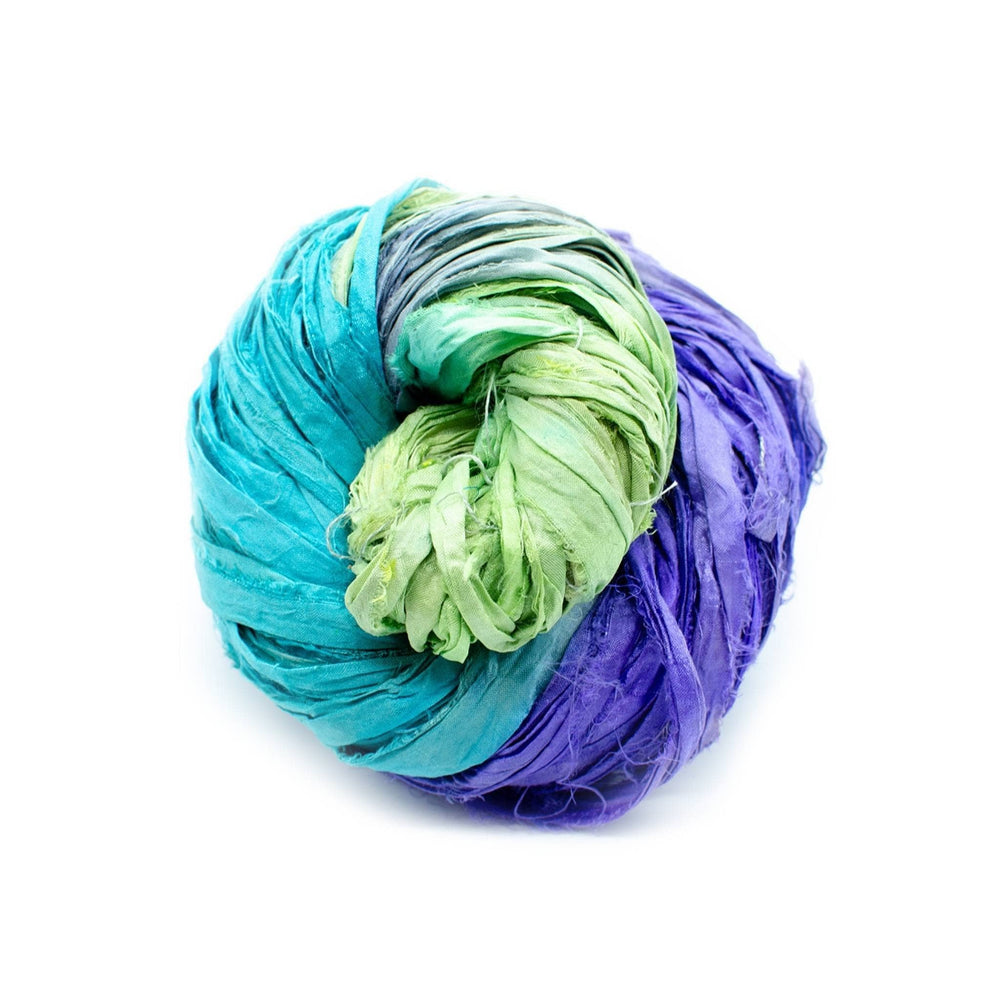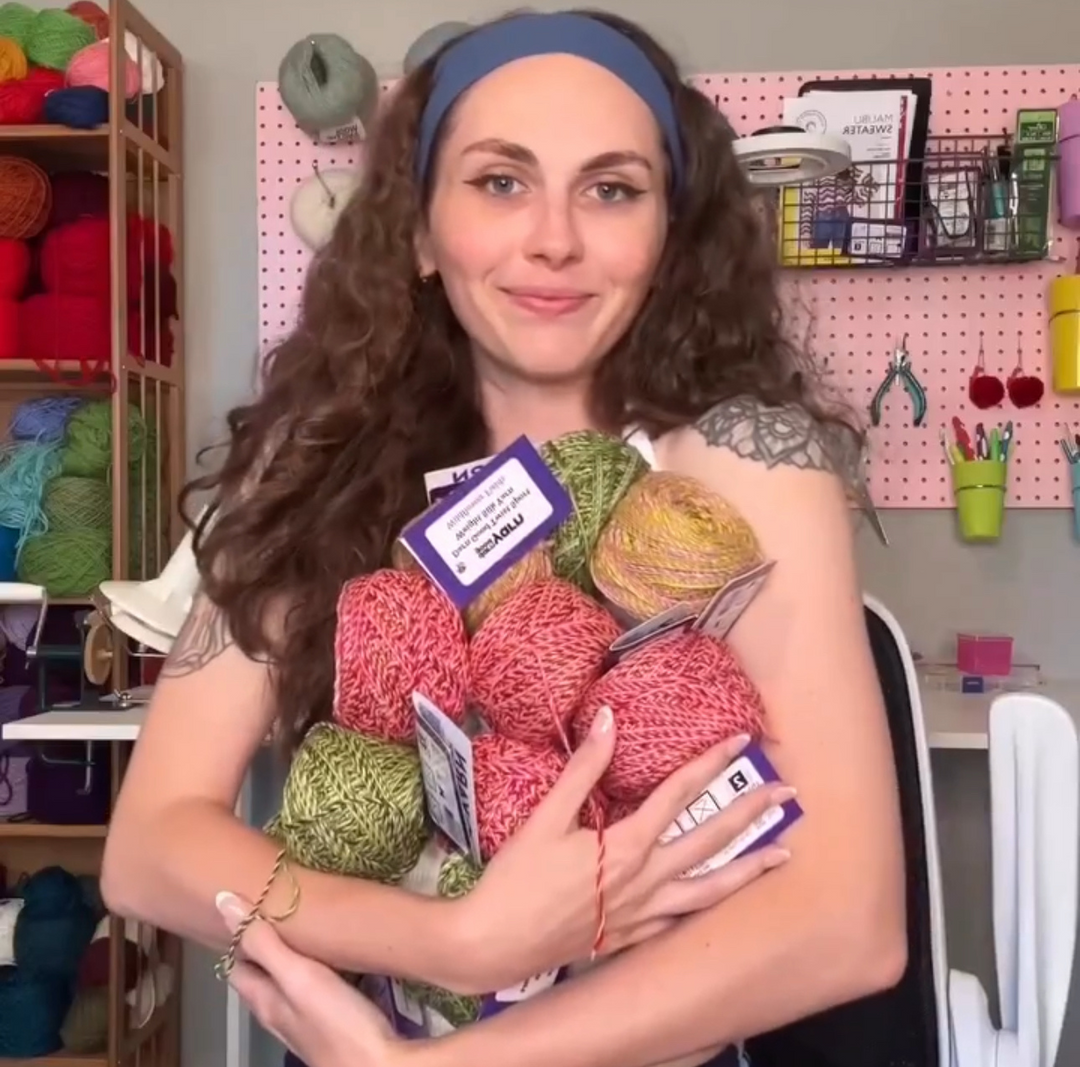Written by Alyssa Scott
When looking to decide which yarn is best for you, or for a particular project, there are many factors to consider. Fiber type and put up are just the start of the considerations to be made. Then you must choose which weight, color, and brand will suit your needs the best. This section will focus on fibers, specifically:
- Different fiber types and uses
- How much these cost
- The itch factor, which yarns are good for sensitive skin
SILK
Silk is one of the only filament fibers found in nature, a single silkworm can spin over a mile of continuous fiber. Silk fibers are collected or reeled from the cocoons of silkworms and then spun together to create threads or yarns. The long, smooth, continuous strands of spun fiber give silk yarn a soft texture and natural luster. These incredible qualities give silk its reputation of luxury.

Because silk is a natural fiber intended to be an insulator, it has the versatility to keep you cool in the warm months as well as warm during the cool months. Silk is both impressively strong and biodegradable, it’s important to store silk away from sunlight and to wash it gently. Yarns made from silk will not be very elastic, and projects made from silk yarn will be drapey rather than bouncy. Because silk fibers are naturally so long and smooth, it is one of the most comfortable fibers for people with sensitive skin or conditions such as eczema, psoriasis or sensitivities to wool.

If you’re looking for a natural fiber yarn that is not going to be itchy or irritating, silk is by far the best option. Though different classes of silk will cost different amounts (and may have different textures), there are a lot of ways to enjoy this miraculous fiber without spending too much money, recycled silk is a wonderful option to consider when you’re looking for luxury on a budget. You can find so many beautiful and soft recycled silk yarns here at Darn Good Yarn.
WOOL
The humble sheep is the animal most credited for the production of wool, though the word wool can be used to describe fibers coming from a number of animals including sheep, goats, rabbits, and more. The yarn and fabrics created from different kinds of wool can have a variety of different characteristics. Wool that comes from sheep generally has great elastic qualities, as well as a high capacity for insulation and moisture retention. There are different classes that wool fibers may be sorted into which denote the fineness of the fibers. The softness of wool fibers is classified through the average diameter of individual fibers in a sample, which is measured in microns, the smaller the diameter or micron the softer the yarn will be.

Certain wools are very coarse and used mostly for things like carpets or insulation, while other types of wool can be extremely fine and soft. Ultrafine merino yarn is often considered the best wool yarn because the fibers are very fine which can result in buttery soft yarns or fabrics. The finest wools may be irritating to people with sensitive skin or skiing conditions, and the coarsest wools may not be irritating to a person with the same condition (species/breed, micron count, and chemical treatments have a lot to do with this). It really depends on the person and their sensitivity, for example I have eczema and there are some wools that seem very itchy to me while there are others that are not itchy to me at all. Wool is certainly not off limits for people with sensitive skin
You might often note that wool will be described as non-superwash or superwash. Superwash refers to a chemical process wool fibers are put through to prevent felting later on. This process allows garments made from superwash wool to be put through regular washer and dryer cycles. Non-superwash wool should not be put in the washing machine or dryer as shrinkage or felting may occur. While non-superwash wool is generally very elastic and bouncy, superwash wool is less so.

COTTON
Cotton is a natural plant fiber that comes from a shrub like plant, the cotton fiber we spin into yarn is produced as a protective cocoon for the cotton seeds. Once harvested and cleaned, cotton fibers can be spun into yarn. The fibers themselves are short and soft, the yarn that it creates is also usually quite soft which makes it a great choice for people with sensitive skin.

Cotton is a wonderful fiber for warm weather. As a plant fiber it naturally allows air and water to pass through it which makes cotton incredibly breathable. You might note that cotton will sometimes be labeled as “mercerized,” This is a process of stretching and wetting the cotton, applying certain acids, and washing. Mercerization helps cotton absorb dye better, and helps to achieve a silky shine.

Cotton is very inelastic, giving fabrics made from the stuff a dreamy drape. It does have a tendency to shrink or become stiff when washed, so it’s important to wash cotton in lukewarm to cool water. Overall cotton is a versatile and breathable fiber which is commonly used to make garments, or practical household goods and is usually fairly affordable.
ACRYLIC
Acrylic and other fibers such as rayon or nylon are manufactured fibers. These fibers are created by extruding a substance into long filaments, then spinning them into threads or yarns. Acrylic yarns can be very flexible and smooth as well as soft to the touch and elastic. These fibers and yarns tend to be machine washable and can often stand up to lots of wear. For these reasons, acrylic fibers are a great choice for products that will be hard wearing and hard washing. Acrylic and other manufactured fibers can also have the advantage of being hypoallergenic yarn, which makes it a great option for people with sensitive skin. Acrylic yarns also tend to be cheaper than other fibers which makes them a good consideration for many crafters, including beginners. This also makes acrylic a great option for making baby items which might need lots of washing, as well as creating beautiful gifts for people who may desire easy washing.
Making Your Choice
Now that you have the basics of the pros and cons of each of these fiber types, you’ll be able to make informed decisions about your next yarn purchase or crafting project. . You can find all of these fiber types from Darn Good Yarn, so what are you waiting for?! It’s time to experiment!!

Alyssa began working at Darn Good Yarn in the spring of 2021. She has been knitting and crocheting as a hobby since childhood. Alyssa graduated from SUNY Plattsburgh with a Bachelor of Arts in Political Science and Gender and Women’s Studies, with a minor in Social Justice
 Rewards
Rewards




